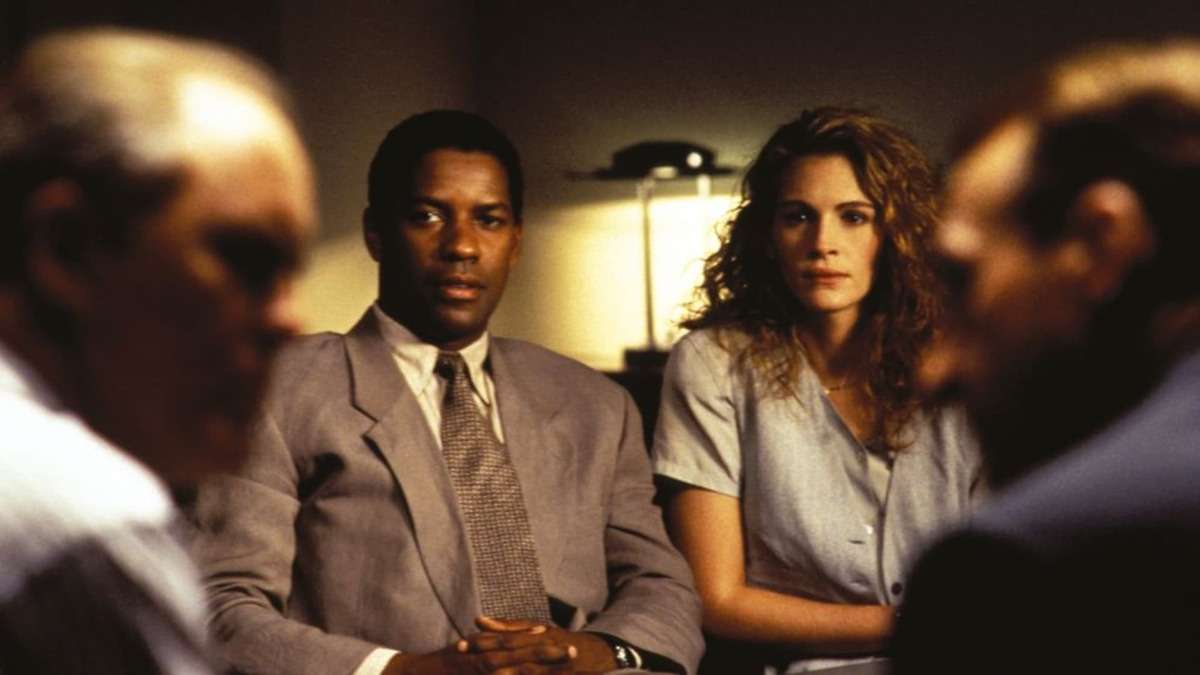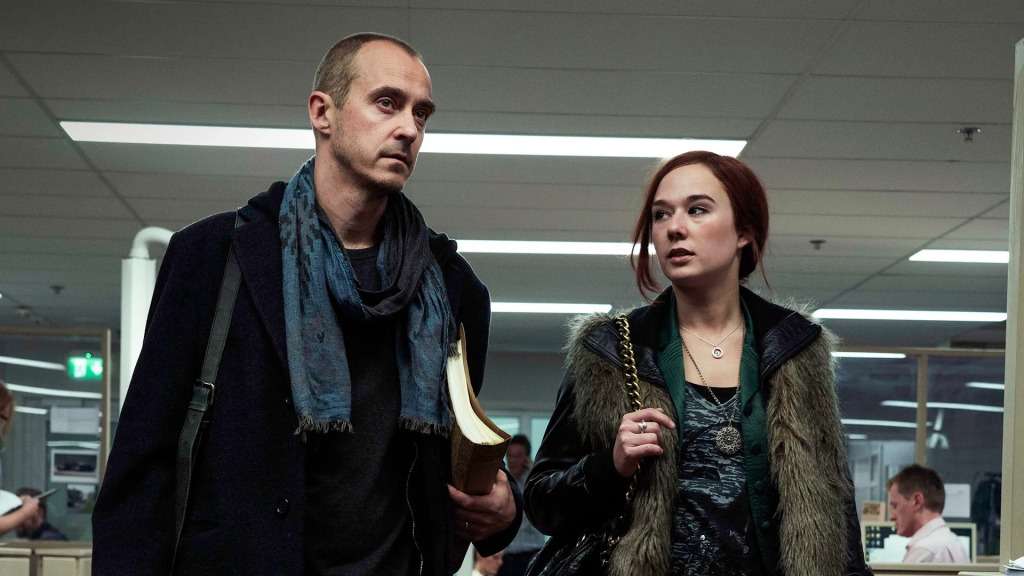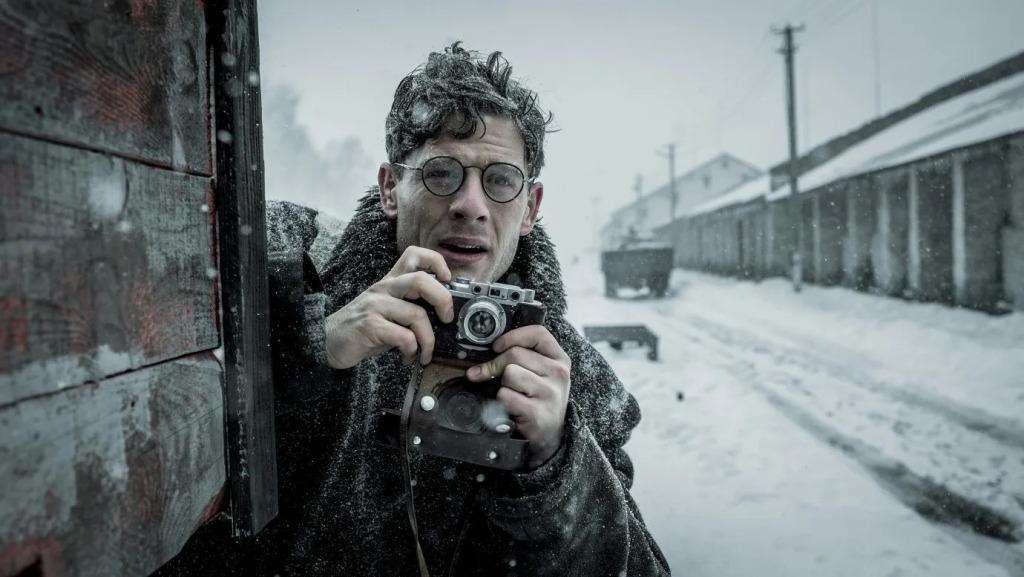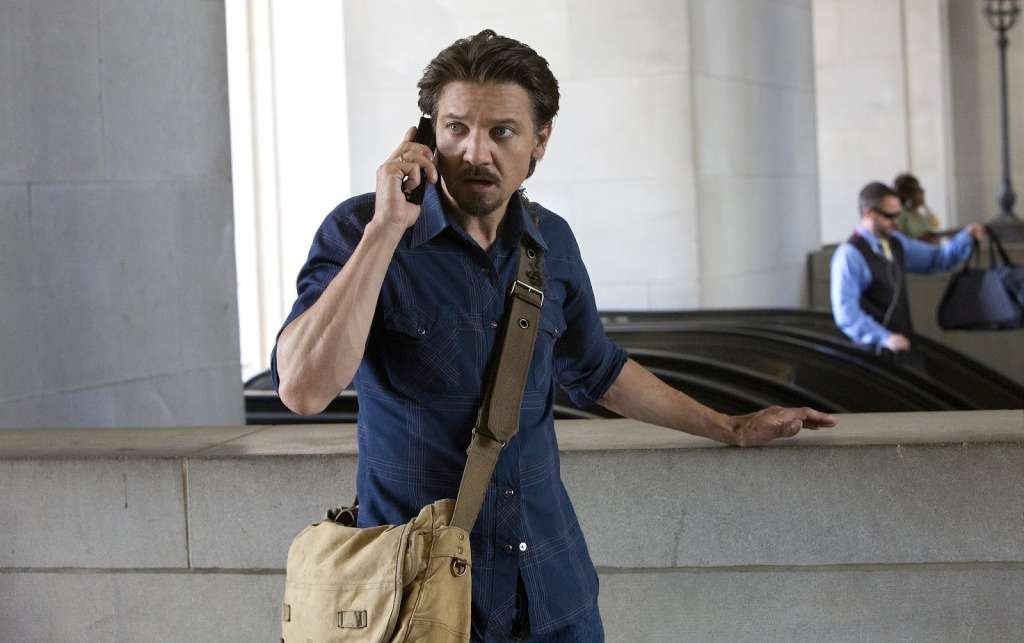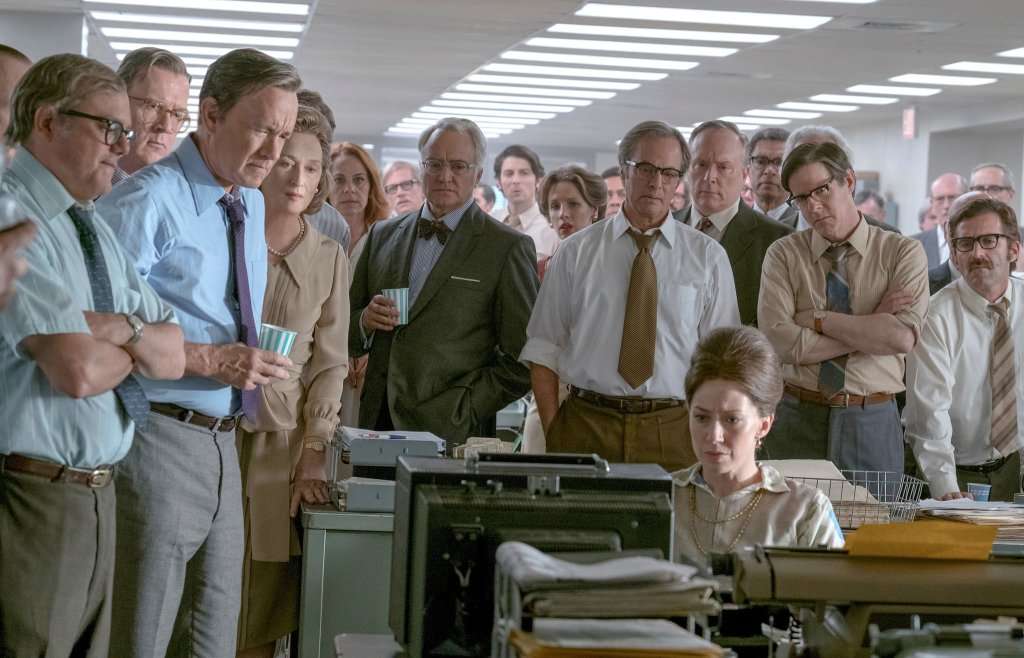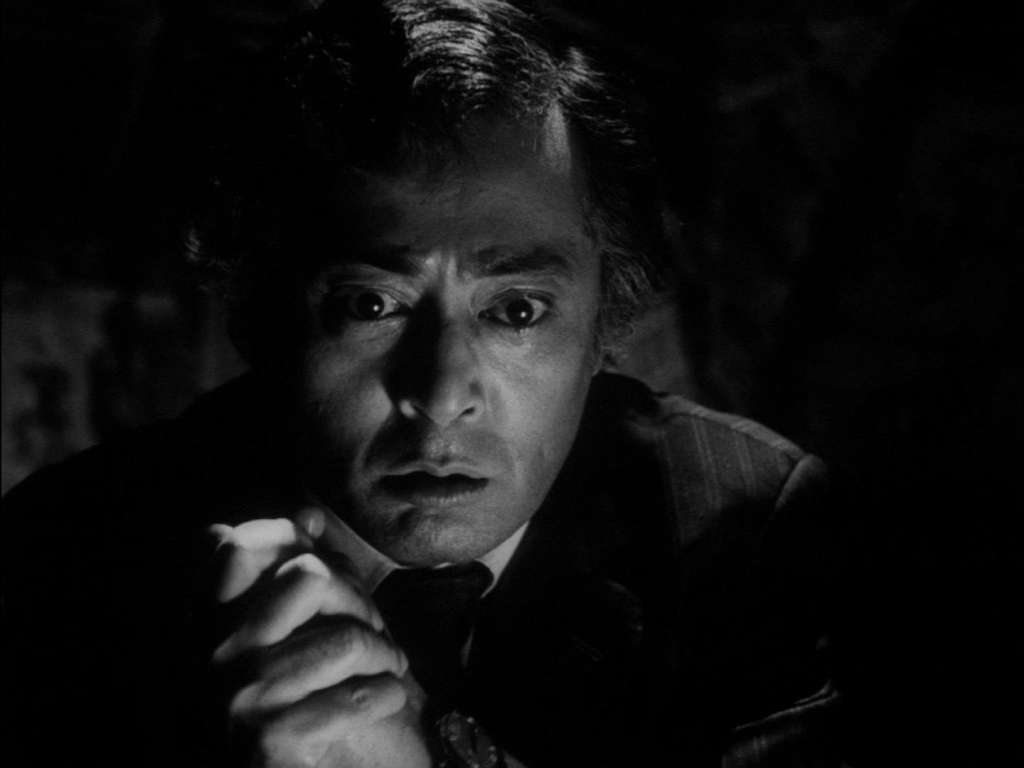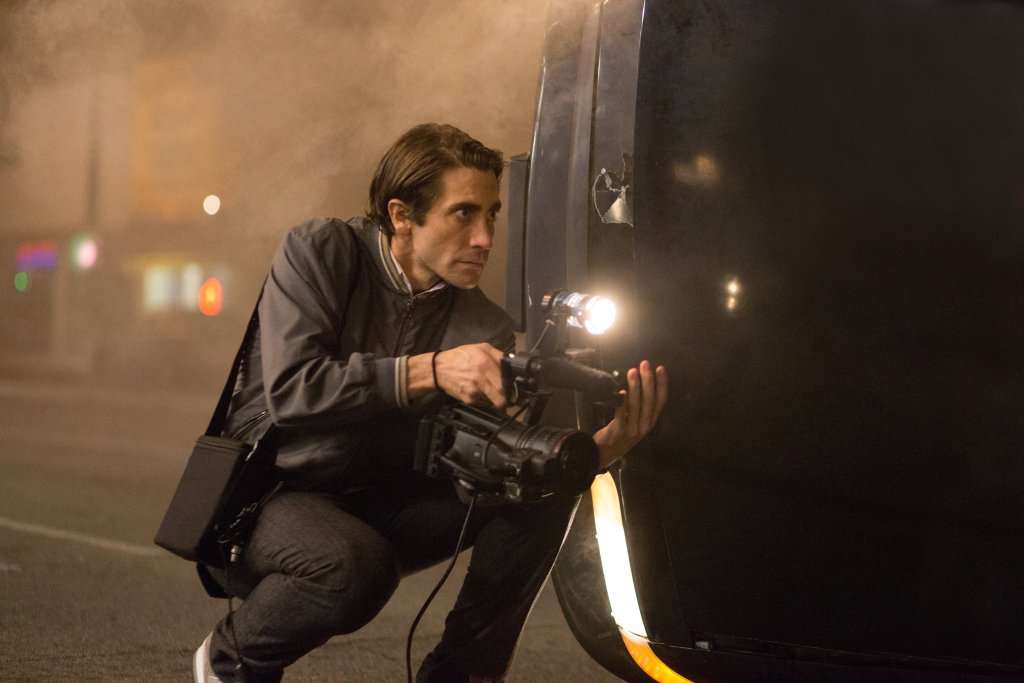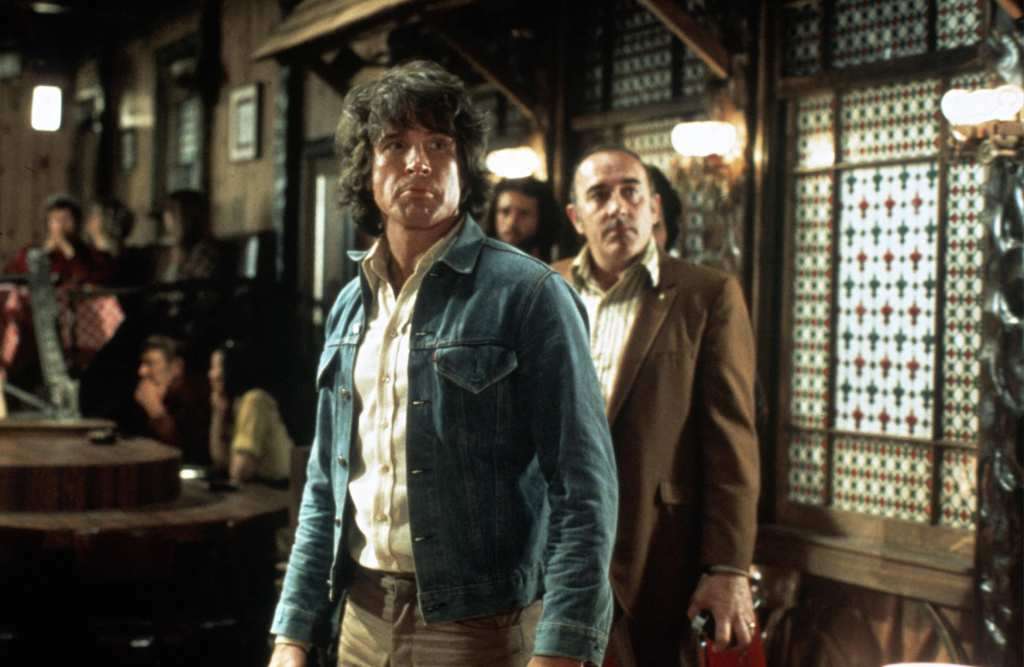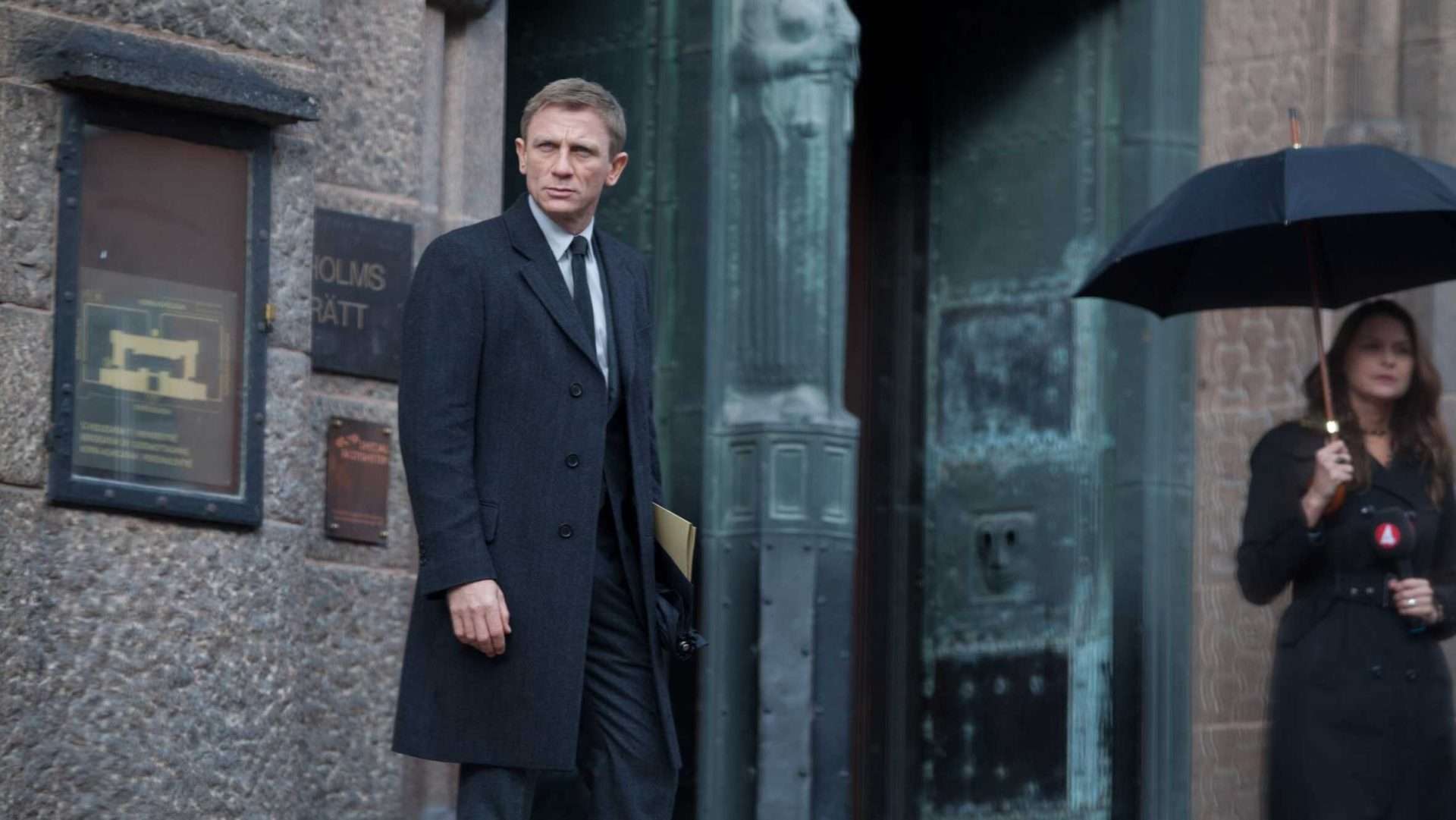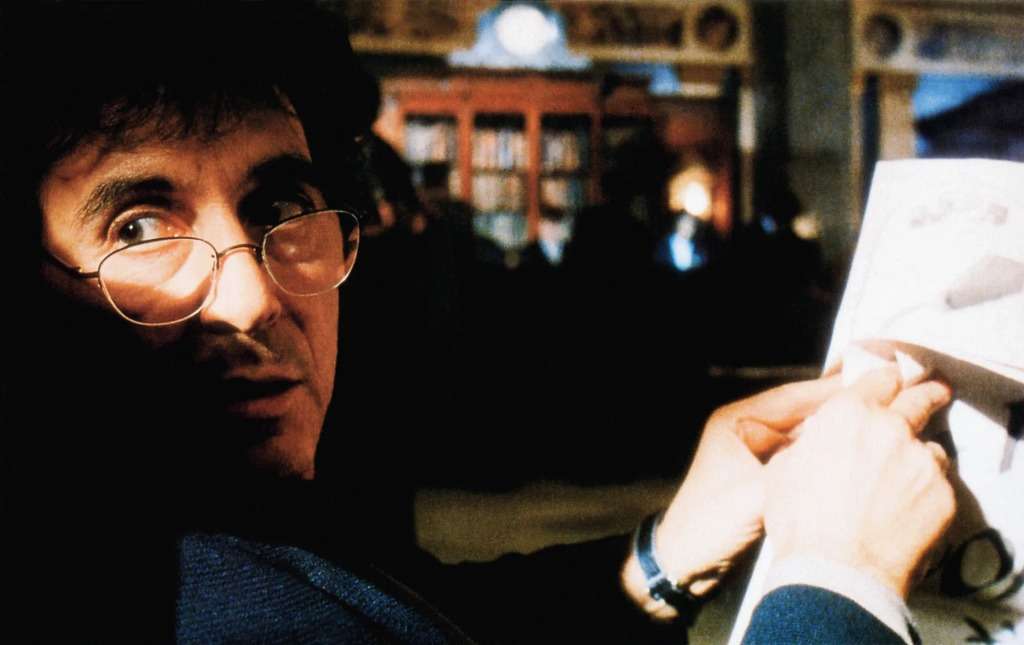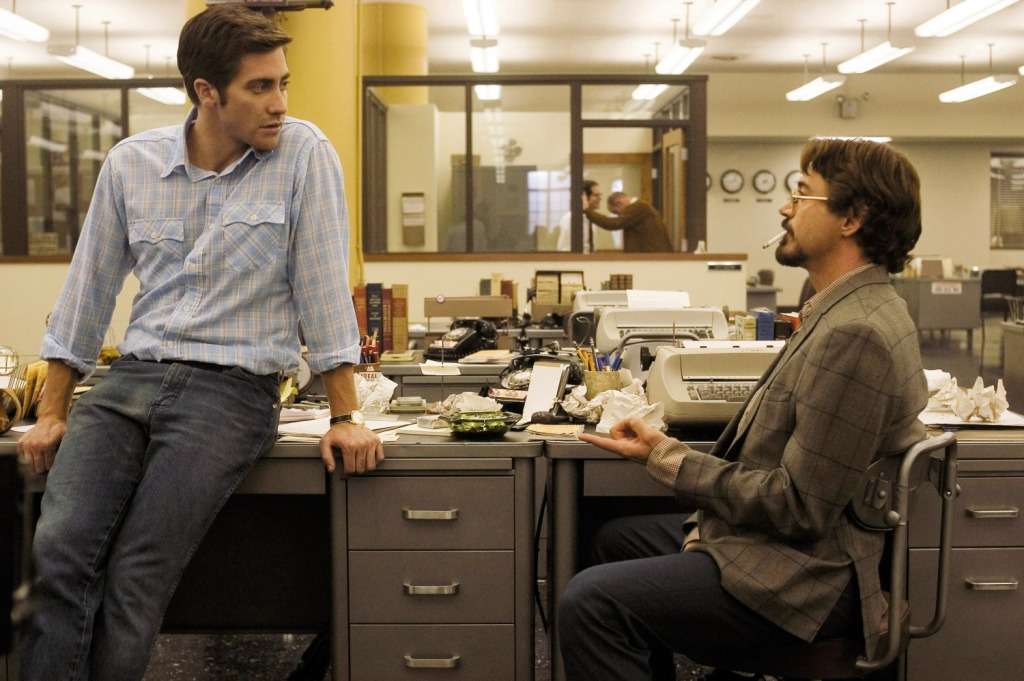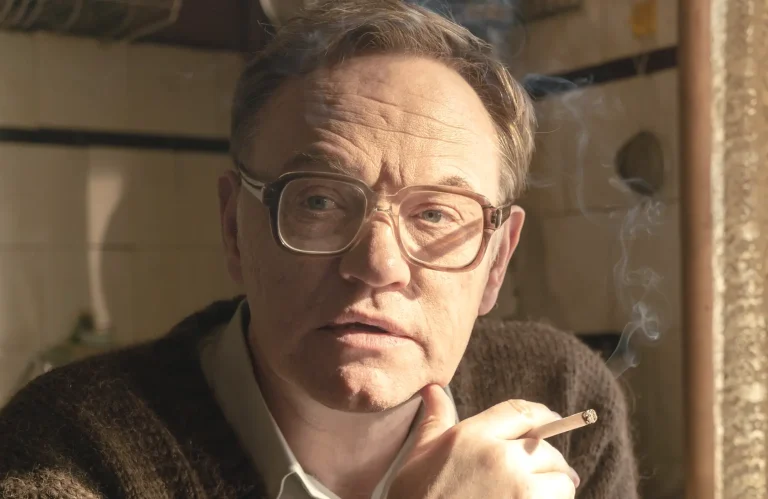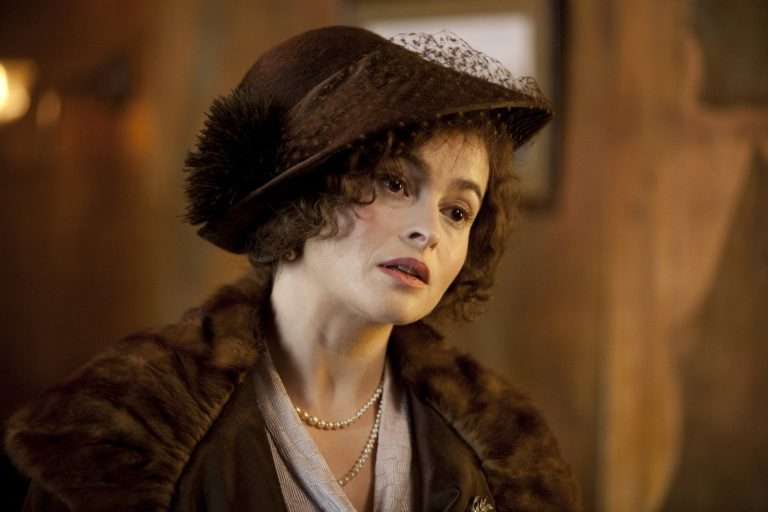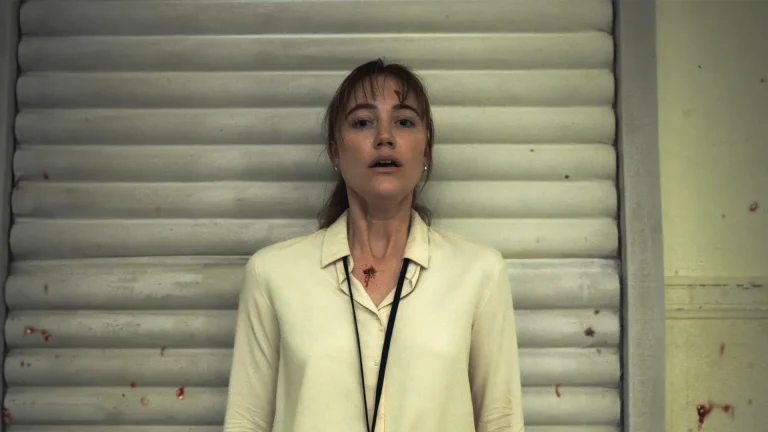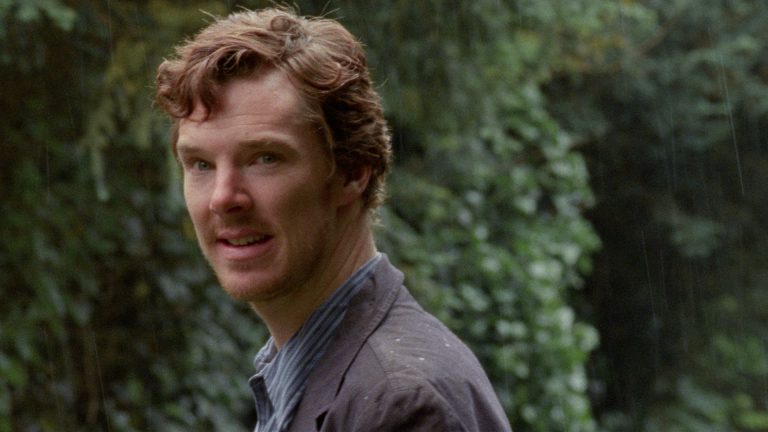20 Best Investigative Journalism Movies: Investigative reporting or watchdog journalism is the most pivotal pillar of a functioning democracy. It can nurture and empower a vigilant public. It is essential for investigative journalism to play an adversarial role to provide a check on power and hold powerful individuals accountable to the public. As print media flourished in 18th-century England, the notion of informed citizenry came into existence. The journalists started to expose the malfeasance and corruption in big businesses and governments. The early fearless watchdog reporters like Nellie Bly (who exposed the abuses in a woman’s mental asylum) and Ida B. Wells (anti-lynching crusader and suffragist) tirelessly fought for social changes.
In cinema, the concept of media as the powerful adversary to the establishment and journalists as truthseekers was strengthened from silent cinema days. The classic 1928 Broadway comedy, The Front Page, by former Chicago reporters Ben Hecht and Charles MacArthur, influenced the portrayal of media in films. The play was adapted for movies quite a few times – the most notable was Howard Hawks’ classic screwball comedy, His Girl Friday (1940). In 1941, Orson Welles made the revolutionary Citizen Kane, which perceived the legacy of a business tycoon through a journalistic lens. With the advent of film-noir, newsroom, and journalistic pursuit became a vital backdrop for gritty narratives such as The Big Clock (1948), Ace in the Hole (1951), Park Row (1952), Deadline USA (1952), Sweet Smell of Success (1957), and so on.
Recommended Read: The 10 Best Movies About Money, Finance, and Wall Street
Investigative journalism or accountability reporting became the primary focus in cinema during the turbulent 1960s and 70s, especially in the US, as activism surrounding civil rights and the Vietnam War was on the rise. The list below predominantly focuses on tales of journalists’ unyielding pursuit of truth while highlighting modern journalism’s bad and ugly facets, where chasing after a ‘good story’ domineers the precepts of investigative reporting. Great to good newsroom dramas like Network (1976), Broadcast News (1987), and The Paper (1994) and movies on war/foreign affairs correspondents – Under Fire (1983), The Killing Fields (1984), Salvador (1986), and A Private War (2018) – remain outside the focus of this list.
Considering the vast spectrum of this theme and topic, I am certain that I might have overlooked some titles. If that’s the case, please let me know in the comments. Now let’s delve into the list of movies involving investigative journalism:
Notable Omissions:
The Pelican Brief (1993)
Based on the 1992 John Grisham novel of the same name, Alan Pakula’s political thriller doesn’t quite pack the punch of his 70s iconic thrillers The Parallax View & All the President’s Men. Yet this far-fetched yet gripping unraveling of political malfeasance in the power corridors of Washington DC is blessed with the star cast of Julia Roberts and Denzel Washington. The Pelican Brief revolves around law student Darby Shaw (Roberts). After the assassination of two Supreme Court Justices, Darby writes a brief detailing her theory on the suspects in the assassination case, which she shares with her law professor and lover, Thomas Callahan (Sam Shepard).
When Callahan shares the brief with his FBI friend, it sets off a chain of events that puts Darby’s life in danger. It also inadvertently proves that Darby is correct, as the President and his Chief of Staff are desperate to keep things under control. Darby contacts Washington Herald’s respected investigative reporter Gray Grantham (Washington) to gather more incriminating information and prove the truth behind the assassinations.
The narrative is too Hollywoodized, as the investigating duo takes up the menacing power centers with considerable ease and emerges unscathed. Yet Pakula pays a rousing tribute to the print media and old-school journalism – especially there’s ample catharsis when Washington Post’s Grantham calls the culprits caught in the wrongdoings for comment before the story’s publication.
Related to Investigative Journalism Movies: 25 Great Trial Films of All Time, Ranked
Quick (2019)
Mikael Hafstrom’s Quick is based on Sweden’s infamous judicial scandal involving the alleged serial killer Sture Bergwall, aka Thomas Quick. The narrative revolves around investigative journalist and documentary filmmaker Hannes Rastam (Jonas Karlsson), who, in 2008, got intrigued by Quick’s case. Quick is known as the most notorious serial killer in Sweden. He was convicted of eight murders (between 1994 and 2001) and admitted to killing more than 30 people. The alleged killer was confined to a high-security psychiatric facility, and the media projected the self-confessed cannibal as Hannibal Lecter.
However, Hannes and his fellow investigative journalist Jenny Kuttim (Alba August) find huge discrepancies in the investigation and trial of Quick’s case. After going through thousands of pages of trial documents and police interrogations, it becomes apparent that there was no real evidence that linked Quick to the eight murders. Bergwall, aka Quick, had a history of criminal behavior, often attributed to the alleged sexual abuse in his childhood. But Hannes’ investigation and his interviews with Quick revealed the appalling truths about the failures of judiciary, law enforcement, and psychiatric care. Hastrom’s direction is unnecessarily flashy in the earlier half of the narrative. Thankfully, it gradually moves towards a restrained approach and allows the bizarre nature of the case to speak for itself.
20. Truth (2015)
James Vanderbilt – the screenwriter of David Fincher’s Zodiac (2007) – has directed this tale of never-say-die journalism with enough investigative thrills and newsroom drama. Based on television producer and reporter Mary Mapes’s 2005 book, “Truth and Duty,” the film chronicles the grave repercussions faced by CBS journalists after scrutinizing George W. Bush’s questionable military service during the Vietnam War. It was initially seen as a crucial piece of information that could flip the results of the 2004 US elections. But as Vanderbilit’s Truth shows, the unholy nexus between the political establishment and corporate America did everything to kill the story and malign those who reported it.
Cate Blanchett plays the fearless CBS producer of “60 Minutes,” whose crusading journalism brings out the inhumane treatment of Iraqi prisoners at Abu Gharib. For her next report with legendary anchorman Dan Rather (Robert Redford), she pursues the stormy topic of incumbent President Bush’s military record. The film comments on how the internet nitpickers with partisan agendas disrupt the process of getting to the truth. Nevertheless, the writing is too heavy-handed and keeps delivering polemics on the downfall of televised news and how corporate America is ruining journalism. Still, the top-notch performances and riveting first half make Vanderbilt’s Truth a decent political drama.
19. Boston Strangler (2023)
Matt Ruskin’s Boston Strangler is based on the investigative reporting of Boston Record American reporters Loretta McLaughlin (Keira Knightley) and Jean Cole (Carrie Coon) on the serial-killing case in the early 1960s. Loretta’s investigation reveals that the rape and murder (by strangulation) of three women in the Boston area is connected to a serial killer. However, Boston law enforcement repeatedly botched the investigation, and more women became serial killer’s victims. Eventually, in 1964, Albert DeSalvo confessed to all the 13 ‘Boston Strangler’ murders. But Loretta and Jean find many discrepancies in the confession. Moreover, they learned in 1965 that six more murders, identical to Boston Strangler’s MO, were committed in Ann Arbor, Michigan.
The question of whether those are copycat murders or if there is more than one Boston Strangler haunts the intrepid reporters. Apart from embarking on a path to expose the truth, Loretta also faces rampant sexism. While Fincher’s Zodiac inspires Ruskin’s Boston Strangler, the underwhelming writing doesn’t allow it to go deep into the minutiae of investigative journalism narrative. Despite a terrific performance from Keira Knightley as a steely-eyed journalist, the film lacks the chill of an investigative thriller and remains emotionally resonant only in parts.
18. The Journalist (2019)
Michihito Fujii’s imperfect yet well-intentioned investigative thriller unfolds very much in the tradition of 1970s American thrillers. Based on the 2017 book by newspaper journalist Isoko Mochizuki, The Journalist shows the alarming extent modern elected governments can go to preserve their influence and power. It’s also a cautionary tale on how the lack of press freedom can allow authoritarianism to thrive. The narrative revolves around young and idealistic reporter Erika Yoshioka (Shim Eun-kyung) and the bureaucrat Takumi Sugihara (Tori Matsuzaka). Sugihara was a former international diplomat who now works at Japan’s intelligence agency, CIRO – Cabinet Intelligence and Research Office.
Sugihara is conflicted by the misinformation campaign he oversees on the agency’s behalf. When Sugihara realizes why his mentor and former boss, Kanazaki, died by suicide, his guilt and suspicions bring him into contact with Yoshioka. The Journalist takes its time in setting up the tale but skilfully escalates the tension and paranoia once the key players’ conflicts are established. The oppressively shadowy environment of government offices spreading fake news deeply unsettles us. The film also doesn’t offer any easy resolution since the fight for press freedom is never-ending.
Recommended Read: 50 Best Japanese Movies of the 21st Century
17. Mr. Jones (2019)
Polish filmmaker Agnieszka Holland’s English language WWII drama, Mr. Jones, tells the true and bleak story of the idealistic Welsh journalist Gareth Jones (James Norton). Written by Andrea Chalupa, the narrative opens in the 1930s as Jones is employed as the foreign advisor to former UK Prime Minister David Lloyd George. Fresh from interviewing Hitler, Jones raises concern about the Nazi’s rise to the Brit Statesmen, who indifferently dismiss young Jones. Soon, Jones loses his job, and an economic crisis looms over Britain. But Jones’ doesn’t waver from his grand aspirations as he goes back to being a freelance journalist intending to interview Stalin at the Kremlin.
Moreover, Mr. Jones is intrigued by Soviet Russia’s rapid economic rise in the past five years. He wants to understand the reason behind Stalin’s miracle. But he learns from the intimidating NY Times’ Moscow Bureau Chief, Walter Duranty (Peter Sarsgaard), that the foreign journalists are confined to Moscow. But by pretending to be the foreign affairs advisor to Llyod George, Jones finds his way into Ukraine and stumbles upon the troubling truth. He discovers Stalin’s genocidal manufactured famine in Soviet Ukraine (known as ‘Holodomor’), which killed over 4 million Ukrainians.
Mr. Jones shows a condensed account of the titular character’s journey across a purgatorial Ukrainian village. In reality, Jones traveled to the Soviet Union three times to extensively expose Stalin’s ruthless Ukraine policy. Nevertheless, Jones’ reports were brushed aside by his country’s politicians. Still, he courageously spoke truth to power until his untimely death at the age of 29 (his suspicious death is allegedly linked to Stalin’s secret police).
16. Kill the Messenger (2014)
Michael Cuesta’s Kill the Messenger tells the tragic true story of San Jose Mercury News reporter Gary Webb (Jeremy Renner). Based on Nicholas Shou’s 2006 book of the same name, the narrative shows how Gary Webb stumbles upon a shocking story that soon damaged his professional and personal life. It’s a common knowledge now how the CIA paid no heed to Nicaraguan contras’ cocaine trafficking to fund a war against communism in their country. The result was the crack epidemic that particularly wreaked havoc in the African American communities belonging to major US cities. But in 1996, as the Clinton government also joined the war on drugs (like Nixon, Reagan, Carter, and Bush administrations), the CIA’s alleged collusion with contras was a story that’s “too true to tell.”
In August 1996, Gary Webb wrote a three-part investigative series titled ‘Dark Alliance’ after learning about Danilo Blandon, a Nicaraguan drug trafficker who also worked as a government informant testifying against drug dealers. Webb’s investigative reporting scrutinized the possible link between the contras and the CIA’s off-the-books attempts to dismantle the leftist Nicaraguan government. However, Webb’s articles were vehemently discredited by government officials and, surprisingly, by major news organizations like the Washington Post and Los Angeles Times. Eventually, the witch hunt killed Webb’s career (who allegedly died by suicide in 2004). Although Kill the Messenger includes certain dramatic cliches belonging to the investigative journalism sub-genre, it is skillfully spear-headed by Renner’s intense performance.
15. State of Play (2009)
Kevin MacDonald’s State of Play is the feature-film adaptation of the riveting 2003 BBC mini-series of the same name. The narrative revolves around Washington Globe’s star investigative reporter, Cal McAffrey (Russell Crowe). The dispatches from the police radio take him to a crime scene, where a young, homeless black man is shot and killed, and a white pizza delivery guy is in a coma. The motive isn’t apparent, and the killer seems to have a military background. However, the big news that grips Washington in the day is the alleged suicide of Sonia Baker, a young woman working as a researcher for Stephen Collins (Ben Affleck), a rising congressman. Mr. Collins is currently heading a committee investigating the possibly shady activities of a private military security company.
Soon after Sonia’s death, it becomes public knowledge that Collins had an affair with Sonia. The committee hearings take the back seat as Collins’ personal life is scrutinized. Collins believes Sonia’s death isn’t suicide and seeks the help of McAffrey to investigate the incident. Collins, his wife, Anne (Robin Wright), and McAffrey are friends from their college days. The newspaper’s editor Lynne (Helen Mirren) and McAffrey’s new protege Della Frye (Rachel McAdams) repeatedly question the reporter’s intentions in relation to Collins. Is he compromised by his mission to protect his friend? Nevertheless, Cal McAffrey and Della’s unwavering investigation leads them to uncover a disreputable connection between powerful politicians and corporate figures.
State of Play is a compelling and well-acted old-school investigative journalism thriller. There are plot holes and character dynamics that aren’t wholly convincing, yet we are invested in the narrative till the final twist. Some of the movie’s narrative threads seem to have inspired the K.V. Anand Tamil mystery/thriller Ko (2011).
Related to Investigative Journalism Movies: The 25 Best Movies About Writers
14. The China Syndrome (1979)
James Bridges’ The China Syndrome is a top-notch, politically aware thriller that scrutinizes the corporate greed within the nuclear power industry. The well-researched film doesn’t try to indulge in far-fetched narrative elements to denounce the harnessing of atomic energy. The threat is believable, and the fault lies with a system designed to reap maximum profit. The story revolves around Jane Fonda’s soft news presenter, Kimberly Wells, who tries to break out of the sexist perception of that era’s media industry. Though condemned to do fluffy entertainment pieces, she takes up an assignment for the network to establish herself as a journalist.
Wells brings in her friend and freelance cameraman, Richard (Michael Douglas), and sound recordist, Hector (Daniel Valdez), to shoot a special episode at the Ventana Nuclear Power Plant. While touring the plant, the trio witnesses a dreadful incident unfolding inside the control room. Richard secretly records the entire events. Though they need the help of industry experts to understand what happened at the power plant, supervisor Jack Godell’s (Jack Lemmon) distressed countenance indicates that a huge disaster was averted. Wells and Jack’s respective investigations reveal the company’s wrongdoings that could compromise the plant’s safety.
The China Syndrome received strong criticisms from the nuclear power industry. Interestingly, twelve days after the movie’s domestic release, the Three Mile Nuclear Accident occurred in Pennsylvania. The film’s final scene still remains shocking and will make you blaze with righteous indignation.
13. Shattered Glass (2003)
Based on the 1998 Vanity Fair article, Billy Ray’s Shattered Glass chronicles one of the infamous journalism scandals. It focuses on Stephen Glass (Hayden Christensen), the young and most sought-after reporter of the New Republic. Known as the influential magazine read by politicians and policy-makers in Washington D.C., the organization’s journalistic integrity was at stake due to Stephen Glass’ “stories.” The 25-year-old Stephen Glass was the magazine’s star reporter and Associate Editor, whose inherent charm and thoughtful gestures towards his co-workers strengthened their belief in him. The only person resistant to Glass’ charms is Chuck Lane (Peter Sarsgaard), who soon becomes the editor-in-chief.
In 1998, one of Glass’ articles titled ‘Hack Heaven’ came under the radar of Forbes Magazine. Their attempt to do a follow-up on the story revealed that it was a complete fabrication. Christensen’s Glass is shown to be a compulsive liar and a manipulative person who has literally ‘cooked up’ 27 out of the 41 stories he wrote for the New Republic between 1995 and 1998 (the count now stands at 36). Moreover, the scandal showcased the major flaws in the conventional fact-checking process conducted by the magazine.
Bolstered by a taut script and phenomenal performances from Christensen and Sarsgaard, the film is a brilliant character study of an insecure and ingratiating individual. Shattered Glass is shockingly relevant in this era of fake news. Eventually, it shows journalism is not about ‘good entertaining stories’ but truth and integrity.
12. Holy Spider (2022)
Ali Abbasi’s Holy Spider is based on the true story of Iranian serial killer Saeed Hanaei, who targeted sex workers, killing sixteen women between 2000 and 2001. Nevertheless, this isn’t a typical serial killer thriller. It rather showcases how an inhumane society that treats women as secondary citizens comes together to create a murderer. To emphasize the rampant misogyny prevalent in Iranian society, Abbasi and his co-writer Afshin Kamran Bahrami introduce a fictional female investigative journalist, Arezoo Rahimi (Zar Amir Ebrahimi). In Holy Spider, she arrives from Tehran to the city of Mashhad and confronts a shockingly apathetic law enforcement system.
In a nation where being a woman and an individual reporting the truth means risking it all, Rahimi embarks on a dangerous path to get the killer arrested. The narrative juggles between the perspectives of Saeed (Mehdi Bajestani), aka “Spider Killer,” and Rahimi. The final act focuses on the complexity of the social issues as the faith-driven community exalts a deluded killer. Though the movie’s visceral bluntness is deeply disturbing, it exposes the societal decay as violence against women is blatantly normalized. Ebrahimi is incredible as the intrepid journalist and the narrative’s moral compass.
Recommended Read: The 10 Best Foreign Language Movies of 2022
11. The Post (2017)
Steven Spielberg’s The Post is a satisfying paean to print-media journalism and an engrossing prequel of sorts to Pakula’s All the President’s Men (1976). The drama covers the revelation of The Pentagon Papers, a multi-volume secret report commissioned by the then–Secretary of Defense Robert McNamara on US military involvement in Vietnam. The report revealed the history of America’s deceit and lies in the Vietnam War. The Post, however, isn’t about the Washington Post’s reporting of the bombshell scoop. In fact, it was the New York Times that first got to the Pentagon Papers. But when Nixon’s government tried to block the Times and other print media from ceasing publication of the classified documents, the Post joined the battle against the government for the sake of free press.
The Post doesn’t offer a lot of chilling revelations about the Nixon era. And it’s more about the changing relationship dynamics between media bosses and those in power – something which set the stage for Post’s reporting on the Watergate Scandal. Nevertheless, the master filmmaker Spielberg creates ample tension as the journalists race against time to cover the damning secret study that implicates four American Presidents. The extraordinary ensemble cast, spear-headed by Tom Hanks and Meryl Streep, also turns even simple conversations into something historically prescient. The Post might be accused of grandstanding and sentimentality, yet Spielberg pleasurably serves a significant lesson on democracy and solidarity in journalism.
10. She Said (2022)
Maria Schrader’s She Said is based on New York Times’ investigative journalists Jodi Kantor and Megan Twohey’s book of the same name. It is one of the most definitive films of the #MeToo Movement, alongside movies like The Tale (2018), The Assistant (2019), Bombshell (2019), and A Promising Young Woman (2020). Shining the spotlight on one of the biggest stories in recent times – the Harvey Weinstein Scandal – She Said follows Jodi and Megan as they investigate the hushed talks of a major film producer being a serial sexual offender. The restrained performances of Zoe Kazan and Carey Mulligan spearhead the sensitive narrative. While most of us might be familiar with the Weinstein story, director Maria Schrader and writer Rebecca Lenkiewicz delicately portray the perspectives and experiences of the traumatized survivors.
The film, naturally, has a stronger emotional impact on us, though the journalistic investigation lacks a bit of complexity and energy. The other critique on the work would be how the vital subject matter clearly overshadows the non-sensationalist yet above-average filmmaking approach. Nevertheless, the narrative’s realistic look at investigative journalism and riveting performances keeps us engrossed. Among the supporting cast, the cameo by Samantha Morton (who plays Zelda Perkins, a former personal assistant to Weinstein) is absolutely unforgettable. The astute reporting in She Said eventually reminds us that the serial predator, Weinstein, is just one individual in a system that often protects its abusers.
Related to Investigative Journalism Movies: 10 Best Films Dealing with Toxic Work Culture
9. Willful Murder (1981)
Kei Kumai is one of the distinct and lesser-known Japanese filmmakers whose movies were often based on true stories and were infused with profound social commentary. Sandakan No.8 (1974) is one of Kumai’s renowned films. It tells the tale of the poverty-stricken Japanese women forced into sexual slavery in the countries of the Asia-Pacific region during the early 20th century. Wilful Murder is a black-and-white investigative thriller bolstered by a paranoia-tinged atmosphere of Alan Pakula and Oliver Stone movies. It is based on the 1949 death of Japanese National Railways Head, Sadanori Shimoyama.
The post-war Japan under American Occupation (till 1952) was rapidly moving towards capitalism, intending to be an ally in America’s crusade against Communism in that region. However, the labor movement, spearheaded by the Japanese Railways Union, was gaining traction. The authorities of US-occupied Japan pushed Shimoyama to dismiss 30,000 railway workers. Soon, Shimoyama’s dismembered corpse was found in the tracks, which was initially ruled as a suicide.
A determined, middle-aged reporter, Yoshiro (Tatsuya Nakadai), believes Shimoyama’s death is a political assassination. He sees it as one of the ploys to shift the blame on union workers and discredit the labor movement. Most importantly, Yoshiro sees the possible connection between Shimoyama’s demise and two mysterious railway incidents – Mitaka and Matuskawa Derailment. Wilful Murder features a painstakingly detailed narrative with numerous characters and unfolds over a decade. Though the film lacks the dramatic force of an Oliver Stone or a Costa-Gavras film, Yoshiro and his colleague’s relentless, methodical pursuit of truth is gripping throughout.
8. Nightcrawler (2014)
Jake Gyllenhaal’s Louis Bloom in Dan Gilroy’s Nightcrawler is the cinematic descendant of Kirk Douglas’ Chuck Tatum – from Billy Wilder’s scathing satire on media sensationalism, Ace in the Hole (1951). Moreover, Bloom’s aggression and solitude remind us of two other iconic characters: Travis Bickle (Taxi Driver) and Rupert Pupkin (The King of Comedy). Nightcrawler doesn’t exactly belong to the investigative journalism sub-genre (and there’s a debate over whether it’s a psychological thriller or media satire). It rather offers a glimpse into the cutthroat capitalistic world of freelance journalism. Still, the film finds its place here for showcasing what happens when the due process of investigation and reporting and journalistic ethics is overruled to feed the public’s voyeuristic craze for ghoulish entertainment.
Under the guise of crime journalism, petty criminal Louis Bloom embarks on ‘night crawling’ – prowling the city after dark, listening to first responders’ radio chatter to shoot footage of crime scenes or accidents and sell it to major news outlets. This individual, without any proper journalistic credentials, voraciously hunts for ‘content.’ Moreover, Louis Bloom exploits the set-up to a great extent, leading him to commit crimes rather than report them. Sprinkled with fine doses of dark comedy, Nightcrawler is a cautionary tale about the commodification of news, where journalism’s unwaveringly observant, truth-seeking nature is fiercely discouraged.
Related to Investigative Journalism Movies: 15 Great Psychological Crime Thrillers with Shocking Plot Twists
7. The Parallax View (1974)
The Parallax View, the second film in Alan J. Pakula’s ‘paranoia trilogy,’ follows an enterprising reporter’s investigation of a senator’s assassination. The film is based on Loren Singer’s 1970 novel, which is loosely inspired by the conspiracy theories surrounding the Kennedy brothers’ assassinations. Warren Beatty plays the West Coast reporter Joe Brady, who questions the government’s ‘lone assassin’ theory in the murder of Senator and Presidential candidate Charles Caroll (Bill Joyce). Brady’s investigation is fueled by the shocking claims made by an emotionally distraught TV reporter, Lee Carter (Paula Prentiss).
Soon, Brady discovers the alleged nefarious activities of a secretive organization called Parallax Corporation. He infiltrates the organization, a detail known only to his editor, Bill (Hume Cronyn). Eventually, Joe Brady pays a heavy price to uncover the truth. Though the film reflected the zeitgeist of that era, its theme of public distrust in government and institutions, unfortunately, has an enduring appeal.
Cinematographer Gordon Willis and director Pakula’s shadowy aesthetics chillingly guide us into the political heart of darkness. The menacing opening and closing courtroom sequences showcase how truth is trapped in the darkness, often far out of reach from the journalistic spotlight.
6. The Girl with the Dragon Tattoo (2011)
David Fincher’s The Girl with the Dragon Tattoo is the American adaptation of Swedish journalist and author Stieg Larsson’s first novel in the Millennium Trilogy series. Larsson’s three novels in the series were previously adapted in Sweden in 2009, with Noomi Rapace playing the protagonist, Lisbeth Salander, a tempestuous and genius computer hacker/private investigator. One of the other primary characters in the series is the incorruptible and disgraced investigative journalist Mikael Blomkvist. Daniel Craig plays Blomkvist in Fincher’s ‘Dragon Tattoo,’ who reluctantly accepts a missing persons case and functions as a sleuth.
Henrik Vanger (Christopher Plummer), the super-rich Vanger family’s patriarch, offers Blomkvist the assignment. The old Vanger is haunted by the four-decades-old disappearance case of his then-16-year-old niece, Harriet Vanger. Blomkvist’s investigation crosses paths with Lisbeth Salander (a brilliant Rooney Mara), and they both look into the dark history of the Vanger family to comprehend the truth behind Harriet’s presumed murder.
Written by Steven Zaillian, Dragon Tattoo shares some of the themes – misogyny, apathy, violence – with Fincher’s previous acclaimed thrillers, Se7en (1995) and Zodiac (2007). The film also profoundly deals with the themes of memory and the historical past.
5. Good Night, and Good Luck (2005)
Like Steven Spielberg’s The Post, George Clooney’s second directorial effort, Good Night, and Good Luck deals with the rousing theme of crusading journalism. Not much investigation is necessary to comprehend the apparent persecution of many Americans during the McCarthy era. Yet, speaking truth to power – even if the truth is obvious – is a challenging task. Clooney’s movie offers an admiring portrait of one such individual. Shot in gorgeous black-and-white and set in 1953-54 America, the film pays tribute to the broadcast journalist Edward R. Murrow. Also, it reflects upon the culture of fear perpetuated by Senator Joseph McCarthy’s ‘Red Scare’ hysteria.
David Strathairn provides a performance of great subtlety in the central role of Murrow. Though at the end of the gripping conflict between Mr. Murrow and McCarthy, the former is fittingly elevated to the status of an icon, Strahairm’s performance keeps the character fallible and human. The film is also blessed with a fantastic ensemble cast, including Clooney, Robert Downey Jr., Patricia Clarkson, Jeff Daniels, Frank Langella, and Ray Wise. Of course, Clooney’s take on the See It Now episode isn’t devoid of the usual Hollywood airbrushing. Yet Good Night, and Good Luck is much more than a small chapter from the Cold War period, as the fear-mongering tactics of politicians to retain power still prevail.
4. The Insider (1999)
Michael Mann’s The Insider is a top-notch whistleblower movie like Sidney Lumet’s Serpico (1973) and Prince of the City (1981). Based on investigative journalist Marie Brenner’s Vanity Fair article, the film offers a dramatized take on the true story of Jeffrey Wigand (a phenomenal Russell Crowe), a former head of research and development at a giant tobacco company. The man exposed damning truths about the tobacco industry with the help of a radical journalist and producer of CBS’ “60 Minutes,” Lowell Bergman (Al Pacino). Pacino’s Bergman sets the benchmark for investigative reporting, for whom truth, trust, and integrity matter more than churning out sensational stories.
Wigand’s life gradually unravels due to Big Tobacco’s slander campaign against him, which also nearly pulls the plug on Wigand’s “60 Minutes” interview. But Bergman even puts his job on the line and never bows down to corporate pressure or lets down Wigand. Mann’s portrayal of this unlikely friendship between two different individuals becomes the crux of the narrative. Moreover, The Insider (co-written by Eric Roth) realistically showcases the laborious process of investigative journalism and how the politics and big business nexus creates multiple obstructions to the investigation. Pacino is splendid as the overworked and determined crusader. Eventually, Mann’s Insider offers essential lessons on morality and ethics in media.
Related to Investigative Journalism Movies: Collective [2019] Review – A Gripping Examination of a Rotten Healthcare System
3. Spotlight (2015)
Tom McCarthy’s Best Picture Oscar-winning drama, Spotlight, focuses on one of the most important works of journalism in the 21st century so far. Written by McCarthy and Josh Singer, the film is based on a series of Boston Globe reports that unveiled the shocking child sexual abuse by the clergy and the subsequent cover-up activities within the local Catholic Archdiocese. The story also revealed the rampant sexual abuse within the Catholic Church across the globe. The narrative sets off with the new Boston Globe editor-in-chief, Marty Baron (Liev Schreiber), inquiring about a column written in their newspaper about a pedophile priest.
The priest is a serial offender and seems to be protected by the Catholic institution. Marty feels the story requires deep investigation that’s suitable for the next ‘spotlight’ story. Spotlight is a team of four investigative reporters who devote their time to the long-form piece, which requires weeks or months of research and investigation. The division, headed by Robby (Michael Keaton), delves into the case of one abusive clergy and gradually uncovers the darker truths about their predominantly Catholic community.
Spotlight brilliantly utilizes dogged reporting as the singular source of its riveting drama. The film perfectly summarizes what it means to work on such a heart-wrenching story and what it means to uphold one’s journalistic integrity while trying to fight for justice. Moreover, it features an understated tone reminiscent of classic newsroom dramas. To his credit, McCarthy doesn’t rely on expository flashbacks and fully trusts his fantastic crew of actors. From Mark Ruffalo, Rachel McAdams to Keaton and Stanley Tucci, each and every performance elevates this story. And like all great works of investigative journalism, Spotlight doesn’t end with chest-thumping victory; it simply reminds us that a reporter’s work must go on in this unjust society.
2. Zodiac (2007)
David Fincher’s riveting character-driven investigative thriller focuses on the unsolved serial murders of ‘Zodiac Killer,’ who is said to have operated in Northern California between the late 1960s and early 1970s. Zodiac is based on former cartoonist and author Robert Graysmith’s non-fiction investigations of the case. Zodiac’s killings became national news and launched mass hysteria, mainly because the killer sent taunting letters and coded ciphers to the newspapers. The painstakingly detailed script, written by James Vanderbilt, revolves around three characters obsessed with finding answers, even long after the killer has vanished from the media spotlight.
The chief character among the three is Robert Graysmith himself, played by Jake Gyllenhaal. Jake’s Robert is a shy cartoonist pushed to the newsroom’s fringes. But his obsession with the Zodiac’s riddles gradually draws him into the investigation to unveil the killer’s identity. Robert teams up with ace reporter Paul Avery (Robert Downey Jr.) and seeks the help of Inspector Dave Toschi (Mark Ruffalo). Zodiac is a film filled with a great deal of clues, breakthroughs, and setbacks. Fincher ensures our emotional investment by making us witness these fascinating characters getting overwhelmed by the case. We are so consumed by the details that the incompleteness (though there are concrete theories on the killer’s identity) immensely affects us.
It’s intriguing how Fincher and Vanderbilt construct the narrative through the media perception of the case. Overall, it’s a look at the fallibility of law enforcement and media, where the latter – as the movie shows – favors sensationalism over accurate reporting.
Related to Investigative Journalism Movies – All David Fincher Movies Ranked
1. All the President’s Men (1976)
All the President’s Men is the third of Alan J. Pakula’s unofficial paranoia trilogy. While Klute and The Parallax View captures the era’s pervasive sense of dread and cynicism, the characters and their stories are fictional. Whereas All the President’s Men is based on the Watergate Scandal, involving the administration of President Nixon, which eventually led to his resignation. It follows Washington Post’s intrepid young journalists, Bob Woodward (Robert Redford) and Carl Bernstein (Dustin Hoffman), as they gradually uncover the connection between burglars who broke into the Democratic Party’s National Headquarters (on June 1972) at the Watergate building, to the higher-ups in the White House. This story of surveillance, intimidation, and cover-up was a disgrace to the American democracy. At the same time, the scandal sparked worldwide interest in investigative reporting.
Based on Woodward and Bernstein, the script was written by William Goldman. The narrative perfectly understands the craft of journalism. It’s considered to be an accurate portrayal of the dogged pursuit of investigative journalists as they tirelessly try to piece together a factual account despite numerous rejections and threats. While in the decades following the Watergate Scandal, Woodward and Bernstein became the epitome of ‘heroic-journalist,’ Goldman and director Pakula don’t employ such conventional tropes to mythologize them. The narrative neither glosses over the intricacies of reporting a story nor simplifies the exceptionally complex nature of Watergate Scandal. Rarely do we see in journalism-themed movies such de-dramatized details about workplace dynamics.
Also Read: The Conversation (1974) – The Weaponization of Paranoia through Film Imagery
All the President’s Men is also a masterclass in filmmaking. Legendary cinematographer Gordon Willis – a frequent collaborator of Alan Pakula – brilliantly employs deep dark shadows and creates expressive silhouette shots. In fact, his distinct lighting technique had earned him the name “Prince of Darkness.” David Fincher has frequently cited All the President’s Men as one of his favorite films. Willis and Pakula bring a sense of urgency to the narrative, which still engrosses us almost five decades later. Though the film deals with a timely political story, this chronicle of undaunted journalists challenging unchecked power resonates with us even today.
All the President’s Men ends with the overwhelming sound of the manual typewriters, emphasizing how investigative journalism contributes to democracy and encourages informed citizenry.

